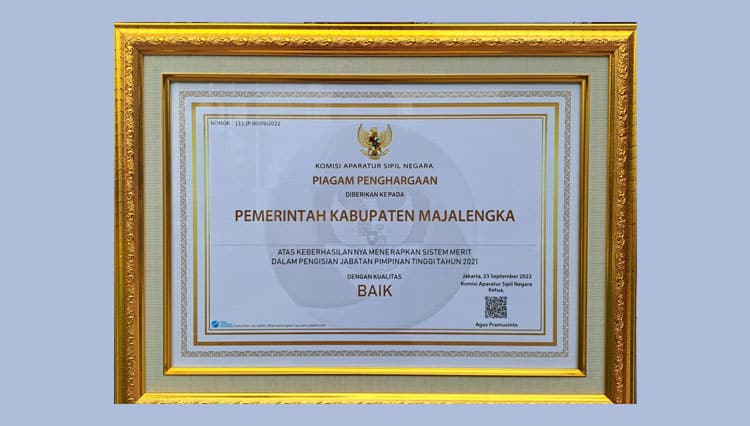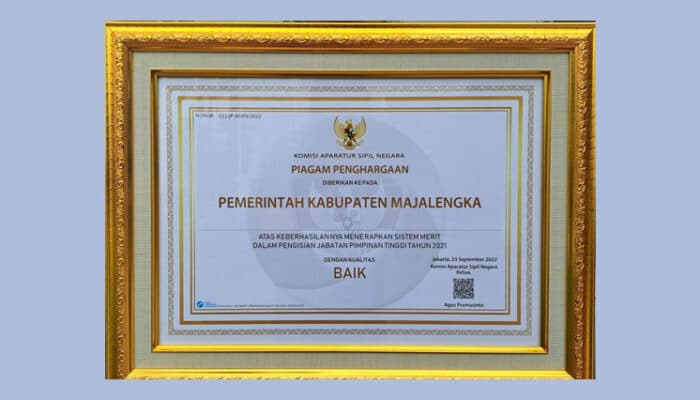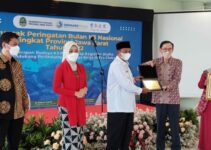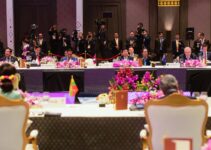Meningkatkan Partisipasi Politik Santun Di Majalengka, or Promoting Respectful Political Participation in Majalengka, is a crucial endeavor for fostering a healthy and vibrant democratic society. This initiative seeks to enhance the level of political engagement in the region by encouraging constructive dialogue, building consensus, and ensuring a fair and inclusive political environment.
Football fans, get ready for the NFL season! Check out the NFL games scheduled for October 2024.
The aim is to empower citizens to participate actively in political discourse while upholding respect for diverse viewpoints and promoting a culture of tolerance.
The project recognizes that respectful political participation is essential for a thriving democracy. It allows for diverse voices to be heard, fosters a sense of community, and enables citizens to hold their leaders accountable. This initiative aims to address the challenges hindering respectful political participation in Majalengka, such as low voter turnout, limited civic engagement, and a lack of trust in political institutions.
Through targeted strategies, the project aims to empower citizens, build trust, and create a more inclusive and respectful political landscape in Majalengka.
Understanding the Current State of Political Participation in Majalengka
Political participation is a fundamental pillar of a healthy democracy, and Majalengka, like many other regions, faces challenges in ensuring active and respectful engagement of its citizens. This section will delve into the current state of political participation in Majalengka, analyzing voter turnout, civic engagement, and participation in political discussions.
It will also explore factors hindering or promoting respectful political participation and discuss the impact of the current political climate on citizen engagement.
Current Level of Political Participation

Analyzing the current level of political participation in Majalengka requires a multi-faceted approach, considering voter turnout, civic engagement, and participation in political discussions. While voter turnout in recent elections has been relatively consistent, there is room for improvement. The region has witnessed a steady increase in engagement in civic activities, particularly among youth.
However, participation in political discussions, especially online, can be polarized and sometimes disrespectful.
Factors Influencing Respectful Political Participation
Several factors influence the level of respectful political participation in Majalengka. One key factor is the level of trust in political institutions and elected officials. A lack of trust can lead to cynicism and apathy, hindering citizens’ willingness to engage in constructive political discourse.
The KPU Majalengka has released the final voter list for the 2024 regional elections. You can find the complete list of registered voters on the KPU website.
Furthermore, limited access to information and education about political processes can also contribute to a lack of engagement. Conversely, strong community networks and a culture of civic engagement can foster a more inclusive and respectful political environment.
Current Political Climate in Majalengka
The current political climate in Majalengka, like many other regions, is characterized by a mix of political polarization and growing awareness of social issues. This can create a challenging environment for respectful political discourse. The rise of social media has also contributed to the spread of misinformation and divisive rhetoric, making it more difficult to engage in constructive conversations about political issues.
The Importance of Respectful Political Participation: Meningkatkan Partisipasi Politik Santun Di Majalengka
Respectful political participation is essential for a thriving democracy. It fosters constructive dialogue, builds consensus, and ensures a healthy political environment. This section will explore the significance of respectful political participation, highlighting its benefits for individuals, communities, and the nation as a whole.
Want to see the solar eclipse in October 2024? It’s a truly amazing sight! Make sure to find the best viewing spots for this celestial event.
Benefits of Respectful Political Participation
Respectful political participation has numerous benefits. It allows individuals to voice their opinions and concerns, promoting a sense of agency and empowerment. For communities, it helps build bridges between diverse groups, fostering social cohesion and a shared sense of purpose.
Cricket fans in India are eagerly awaiting the World Cup in 2024! You can read more about the impact of this event on cricket in India here.
At a national level, respectful political participation ensures that a wide range of perspectives are considered in policymaking, leading to more effective and inclusive governance.
Examples of Positive Outcomes
History provides numerous examples of how respectful political participation has contributed to positive outcomes. In countries with robust democratic traditions, citizens’ active engagement in political processes has helped to shape policies, hold leaders accountable, and ensure a peaceful transition of power.
These examples demonstrate the vital role of respectful political participation in maintaining a healthy and functioning democracy.
The time change in October 2024 is approaching! Get ready for Daylight Savings and make sure to adjust your clocks.
Strategies for Enhancing Respectful Political Participation in Majalengka
Enhancing respectful political participation in Majalengka requires a multi-pronged approach, encompassing education, building trust, and promoting inclusive participation. This section will Artikel potential strategies and a comprehensive plan for fostering a more inclusive and respectful political environment.
Android tablets are always getting better! If you’re in the market for a new one, you’ll want to check out the upcoming Android tablets in 2024.
Potential Strategies
- Promote civic education and awareness campaigns to educate citizens about their rights and responsibilities.
- Develop programs that foster critical thinking skills and media literacy to combat misinformation and promote responsible online engagement.
- Create platforms for constructive dialogue and encourage respectful debate on political issues.
- Support the development of community-based organizations that promote civic engagement and social cohesion.
Comprehensive Plan
A comprehensive plan for enhancing respectful political participation in Majalengka should include the following key actions:
- Develop a comprehensive civic education program: This program should cover topics such as the history of democracy, the electoral process, and the importance of respectful political discourse.
- Implement public awareness campaigns: These campaigns should utilize various communication channels, including social media, traditional media, and community events, to reach a broad audience.
- Organize community forums and workshops: These events should provide platforms for open dialogue and encourage constructive conversations about political issues.
- Foster trust and transparency in political processes: This can be achieved by promoting accountability, ensuring fair elections, and addressing concerns about corruption.
- Create a more inclusive and accessible political system: This includes encouraging participation from diverse communities, including marginalized groups.
Key Stakeholders and Roles
| Stakeholder | Role and Responsibilities |
|---|---|
| Government | Develop and implement policies that promote civic education, access to information, and fair elections. |
| Civil Society Organizations | Organize community forums, workshops, and awareness campaigns. |
| Educational Institutions | Incorporate civic education into curriculum and promote critical thinking skills. |
| Media | Promote responsible journalism and provide accurate and balanced information. |
Education and Awareness Campaigns
Education and awareness campaigns play a crucial role in fostering respectful political participation. This section will explore strategies for developing comprehensive educational programs and public awareness campaigns to engage citizens and encourage their active participation in political discourse.
Comprehensive Educational Program
A comprehensive educational program aimed at promoting civic education and raising awareness about the importance of respectful political participation should include the following elements:
- Curriculum Development: Incorporate civic education into school curricula, covering topics such as the history of democracy, the electoral process, and the importance of respectful political discourse.
- Teacher Training: Provide teachers with the necessary skills and resources to effectively teach civic education and promote critical thinking skills.
- Community Outreach: Extend civic education programs beyond schools to reach adults and community members through workshops, seminars, and public forums.
Public Awareness Campaign
A public awareness campaign should utilize various communication channels to engage citizens and encourage their active participation in political discourse.
The full moon in October 2024 is said to have a powerful influence on intuition. Learn more about the impact of this full moon on your inner voice.
- Social Media: Utilize social media platforms to disseminate information about political processes, promote civic engagement, and encourage respectful online interactions.
- Traditional Media: Partner with local newspapers, radio stations, and television channels to broadcast public service announcements and educational programs.
- Community Events: Organize public forums, debates, and town hall meetings to provide platforms for open dialogue and encourage citizen participation.
Community Forums and Workshops
Community forums and workshops provide valuable platforms for facilitating dialogue and encouraging constructive conversations about political issues.
Don’t let the time change in October 2024 catch you off guard! Make sure to prepare for the switch and avoid any confusion.
- Facilitate Open Dialogue: Create a safe and inclusive environment for participants to share their perspectives and engage in respectful dialogue.
- Encourage Critical Thinking: Promote critical thinking skills by encouraging participants to analyze information, identify biases, and evaluate different perspectives.
- Build Consensus: Seek common ground and identify areas of agreement, fostering a sense of shared purpose and understanding.
Building Trust and Transparency
Building trust and transparency in political processes is essential for fostering respectful political participation. This section will discuss strategies for promoting accountability, ensuring fair elections, and addressing concerns about corruption. It will also explore the role of media and social media in shaping public discourse and promoting respectful political participation.
Promoting Accountability and Fair Elections
- Strengthen Electoral Processes: Implement measures to ensure fair and transparent elections, including independent election monitoring, voter registration reform, and campaign finance regulations.
- Enhance Government Transparency: Promote open government initiatives, such as freedom of information laws, public access to government data, and independent audits of government spending.
- Hold Leaders Accountable: Establish mechanisms for holding elected officials accountable for their actions, including independent oversight bodies, investigative journalism, and citizen-led initiatives.
Addressing Concerns about Corruption
- Strengthen Anti-Corruption Laws: Enact and enforce robust anti-corruption laws, including laws against bribery, extortion, and money laundering.
- Promote Ethical Conduct: Encourage ethical behavior among public officials through training programs, codes of conduct, and whistleblower protection mechanisms.
- Foster Transparency in Public Procurement: Implement transparent and competitive procurement processes to minimize opportunities for corruption.
Role of Media and Social Media
Media and social media play a significant role in shaping public discourse and promoting respectful political participation.
Planning to attend the World Cup Cricket in 2024? Check out this link for a complete fan guide and travel information.
- Promote Responsible Journalism: Encourage media outlets to adhere to ethical standards of journalism, including accuracy, impartiality, and accountability.
- Combat Misinformation: Develop strategies for identifying and debunking false information and promoting fact-checking initiatives.
- Encourage Constructive Online Engagement: Promote online platforms and communities that foster respectful dialogue and discourage the spread of hate speech and harassment.
Creating a More Inclusive and Accessible Political System
- Promote Representation of Diverse Communities: Encourage the participation of marginalized groups in political processes through outreach programs, voter registration drives, and candidate training programs.
- Simplify Political Processes: Streamline political processes to make it easier for citizens to participate, such as simplifying voter registration procedures, providing accessible information about political issues, and creating online platforms for citizen engagement.
- Provide Language and Accessibility Support: Ensure that political information and materials are accessible to all citizens, regardless of language or disability.
Role of Religious Leaders and Community Organizations
Religious leaders and community organizations play a vital role in promoting respectful political participation. This section will explore their potential role in fostering dialogue, encouraging civic engagement, and promoting a culture of respect and tolerance.
Make sure to catch the lunar eclipse in October 2024! Check out this link for the best ways to watch the eclipse.
Fostering Dialogue and Civic Engagement
- Organize Interfaith Dialogue: Facilitate dialogue between different religious communities to promote understanding, respect, and collaboration.
- Encourage Civic Education: Integrate civic education into religious teachings and community outreach programs.
- Promote Voter Registration: Encourage members of their communities to register to vote and participate in elections.
Promoting a Culture of Respect and Tolerance
- Preach Messages of Peace and Harmony: Emphasize the importance of respect, tolerance, and peaceful coexistence in their teachings and sermons.
- Condemn Hate Speech and Violence: Publicly denounce hate speech and violence against any group or individual.
- Promote Interfaith Collaboration: Encourage interfaith partnerships and joint initiatives to address social issues and promote civic engagement.
Specific Actions for Religious Leaders and Community Organizations, Meningkatkan Partisipasi Politik Santun Di Majalengka
| Action | Description |
|---|---|
| Organize community forums on political issues. | Provide a platform for respectful dialogue and exchange of ideas. |
| Develop educational materials on civic engagement and the electoral process. | Educate community members about their rights and responsibilities as citizens. |
| Partner with local government and civil society organizations. | Collaborate on initiatives that promote civic engagement and social cohesion. |
| Promote responsible online behavior and combat the spread of misinformation. | Encourage respectful online interactions and educate community members about online safety and digital literacy. |
Promoting Digital Literacy and Responsible Online Engagement
Digital literacy and responsible online engagement are crucial for fostering respectful political discourse in the digital age. This section will discuss strategies for educating citizens about online safety, combating misinformation, and promoting constructive online interactions.
Digital Literacy Education
- Critical Thinking and Media Literacy: Educate citizens about how to identify credible sources of information, evaluate the reliability of online content, and recognize potential biases.
- Online Safety and Privacy: Teach citizens about online security practices, including password management, data protection, and avoiding scams.
- Cyberbullying and Harassment: Raise awareness about cyberbullying and online harassment and provide resources for reporting and seeking support.
Combating Misinformation
- Fact-Checking Initiatives: Support fact-checking organizations and encourage citizens to verify information before sharing it online.
- Media Literacy Campaigns: Promote media literacy campaigns that educate citizens about the different types of media, how to identify bias, and how to critically evaluate online content.
- Platform Accountability: Advocate for greater accountability from social media platforms to address the spread of misinformation and hate speech.
Promoting Constructive Online Interactions
- Online Civility Guidelines: Develop and promote online civility guidelines that encourage respectful communication and discourage personal attacks, hate speech, and harassment.
- Constructive Dialogue Forums: Create online platforms that foster respectful dialogue and encourage constructive conversations about political issues.
- Positive Online Role Models: Highlight individuals and organizations that demonstrate responsible online behavior and promote respectful discourse.
Evaluating Progress and Measuring Impact
Evaluating the effectiveness of initiatives aimed at enhancing respectful political participation is crucial for ensuring that these efforts are making a real difference. This section will identify key metrics and indicators for evaluating progress and measuring impact.
Looking for a new tablet? You might want to check out the latest tablets coming out in 2024.
Key Metrics and Indicators
- Voter Turnout: Track voter turnout in elections to assess the level of citizen engagement in the political process.
- Civic Engagement: Monitor participation in civic activities, such as volunteering, community meetings, and advocacy groups.
- Political Discourse: Analyze online and offline political discourse to assess the level of respect, civility, and constructive dialogue.
- Trust in Institutions: Measure public trust in political institutions and elected officials through surveys and opinion polls.
- Media Literacy: Assess citizens’ understanding of media literacy principles, their ability to identify credible sources of information, and their awareness of online safety practices.
Monitoring and Evaluation Framework
A monitoring and evaluation framework should be developed to track progress and measure the impact of initiatives aimed at enhancing respectful political participation.
Curious about Jason Momoa’s current relationship status? Find out who his girlfriend is in October 2024 by reading this article.
- Baseline Data Collection: Establish baseline data on key metrics and indicators to provide a benchmark for measuring progress.
- Regular Data Collection and Analysis: Collect data regularly to track changes in key metrics and indicators over time.
- Qualitative Data Collection: Conduct focus groups, interviews, and surveys to gather qualitative data on citizens’ perceptions and experiences related to political participation.
- Impact Assessment: Conduct impact assessments to evaluate the effectiveness of specific initiatives and identify areas for improvement.
Examples of Best Practices
Drawing inspiration from successful interventions in other regions or countries can provide valuable insights for enhancing respectful political participation in Majalengka.
- Civic Education Programs: Explore successful civic education programs implemented in other countries, such as the “We the People” program in the United States, which aims to teach students about the Constitution and the principles of democracy.
- Media Literacy Initiatives: Study successful media literacy initiatives, such as the “Media Smarts” program in Canada, which aims to equip young people with the skills to critically evaluate media messages and identify misinformation.
- Online Dialogue Platforms: Examine successful online dialogue platforms, such as the “Common Ground” initiative in the United Kingdom, which provides a platform for respectful dialogue and constructive conversations about political issues.
Conclusion
By promoting respectful political participation, Majalengka can become a model for other regions in Indonesia. This initiative is a testament to the commitment of the community to building a more inclusive and democratic society. Through education, awareness campaigns, and collaborative efforts, the project aims to create a political environment where citizens feel empowered to participate in meaningful and respectful ways, contributing to the betterment of their community and the nation as a whole.
The Majalengka regional elections in 2024 could have a significant impact on the region’s development. You can learn more about the potential effects of the elections on development by reading this article.
Helpful Answers
What are the key challenges hindering respectful political participation in Majalengka?
Challenges include low voter turnout, limited civic engagement, a lack of trust in political institutions, and a polarized political climate.
How can religious leaders and community organizations contribute to promoting respectful political participation?
The rumors about Jason Momoa and Eiza González breaking up in October 2024 have been swirling. Get the latest details about their relationship status by reading this article.
They can foster dialogue, encourage civic engagement, promote a culture of respect and tolerance, and educate communities about their rights and responsibilities.
What are the benefits of promoting respectful political participation in Majalengka?
Benefits include fostering constructive dialogue, building consensus, ensuring a healthy political environment, empowering citizens, and strengthening democracy.
The October 2024 lunar eclipse is a fascinating celestial event. You can learn more about the scientific implications of this eclipse by checking out this link.
What are some examples of best practices from other regions or countries that can serve as models for Majalengka?
Examples include citizen education programs, independent media platforms, and initiatives promoting transparency and accountability in government.









